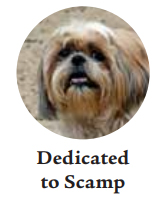 • According to the American Medical Veterinarian Association(AMVA), there are certain signs in a pet’s health that point to a dental problem.
• According to the American Medical Veterinarian Association(AMVA), there are certain signs in a pet’s health that point to a dental problem.
“If there’s an issue can present with bad breath, it can present with loose teeth. It can present with swelling in the jaw, behind the eye, or anywhere else in the mouth. Inflamed gums. Most dogs and cats will eat despite them having tremendous periodontal disease and things like that. So that’s not always the first thing we look for,” Dr. Sherri Dubuc, chief of staff said at Emerald Shores Pet Hospital Resort and Spaw.

“The smaller the dog, the toy breeds generally have genetically poor teeth, so they actually should have their teeth cleaned every year, year and a half. Once they get to be about two or three years old. Larger breed dogs don’t build up as much plaque. They don’t get as much dental disease, and you can usually space that cleaning out three, sometimes even four years,” Dubuc said.
If oral surgery is needed, the pet will be under anesthesia in order to get a full glimpse at the problem. Dubuc said proper treatment and check-ups can help keep your loved one around longer.
“Having periodontal disease can lead to bone decay, infections in the jaw or the bone. It can lead to heart disease. Vegetative endocarditis can be a result of periodontal disease. It can actually shorten their lifespan if they have a bad enough infection,” Dubuc said.
The AMVA said brushing your pet’s teeth regularly is the best way to prevent frequent vet bills or major dental problems.
• RescueCon, OPAC’s one-day event bringing creativity and community together to celebrate and facilitate animal rescue and adoption, returns on Saturday, March 23 from 11 am to 4pm. This year’s event features animal welfare influencer, the Kitten Lady (Hannah Shaw), and is free and open to the public. Festivities will be held at Community Center Park East, just behind the Oxnard Performing Arts & Convention Center. More information can be found at: theopac.org/rescuecon
With 1.3 million Instagram followers, “Kitten Lady” Hannah Shaw is this year’s special guest. She’s a renowned animal advocate, educator, and author, dedicated to improving the lives of vulnerable animals, particularly kittens. With a background in animal rescue and welfare, Shaw has become a leading voice in the field, inspiring a global community to care for and protect animals in need. Hannah will be leading two workshops: “Saving Kittens’ Lives” and “Community Cats 101.” While Kitten Lady talks are free, there are limited VIP tickets with preferred seating available through Eventbrite which include a Meet & Greet.
A few of the special activities for 2024 include:
Pet adoptions from Ventura County Humane Society, Canine Animal Rescue League, Humane Society of Ventura County, Santa Paula Animal Rescue, the Bunny Brigade, and others
Kid’s Area with jolly jump, hands-on and educational activities
Nonprofit exhibitors including National Search Dog Foundation, Cassie’s Cats, Animal Guardians Horse Rescue, California Coastal Horse Rescue, Harleys Heart Kitten Rescue, Santa Barbara Wildlife Care Network, and others
Approximately 6.3 million companion animals enter U.S. animal shelters nationwide every year. RescueCon is one way to increase animal adoption, promote animal welfare and help create a strong rescue community. The event will also help shed light on other animals in need in our community, including marine animals, wildlife, farmed animals, and others.
RescueCon has been made possible thanks to generous support from the Ventura County Community Foundation’s Animal Welfare Fund.
• Guinness rescinds Bobi’s title as world’s longest-lived dog. Bobi, a Portuguese mastiff, probably was not 31 years and five months old when he died, according to Guinness World Records, which pulled the previously awarded title of world’s longest-lived dog from the dog. “Extraordinary claims require extraordinary evidence, and no concrete evidence has been provided to prove his age,” said veterinarian Danny Chambers, a council member of the Royal College of Veterinary Surgeons.
• Licking: cats are absolutely obsessed with it. In fact, research suggests an adult domestic feline can spend up to 8 per cent of their waking hours grooming their body with their tongue. Licking can also play an important social role with felines, with adults often licking each other just before copulating.
But what about humans: why do cats lick people? The good news: there’s no evidence to say your cat considers this any part of a pre-mating ritual. The bad news: scientists and cat behavioral experts aren’t completely sure why your cat might mop their little tongue against your face or hand.
However, while there’s no overarching and definitive explanation for this behavior, there are several theories about why domestic felines lick humans. Spoiler: your cat doesn’t come off well in any of them.
Why do cats lick people?
There’s no one reason why your cat might lick you. However, there are three main theories as to why domestic felines engage in this behavior:
They’re displaying they trust you.
They’re accessing biochemical information from your skin.
They’re marking you as another one of their possessions.
The trust theory
Yes, there’s a chance a cat may lick you to show they trust you. Or at least to show they don’t consider you as serious competition.
“This type of licking is similar to a cat-to-cat behavior known as allogrooming, which is basically mutual grooming. A cat will learn this from its mother when they’re a very young blind and deaf kitten. It’s basically to clean the kitten and strengthen social bonds,” says Dr David Sands, an expert in animal psychology with over 25 years of clinical experience.
“Because of these maternal origins, adult cats will only lick other cats they trust and are not in competition with. And this trusting grooming behavior may be transferred to a human.”
“After all, cats are not sitting there saying ‘I’m a cat and you’re a human being’. To them, animals are either in competition with them or not. And licking shows you’re not in competition.”
